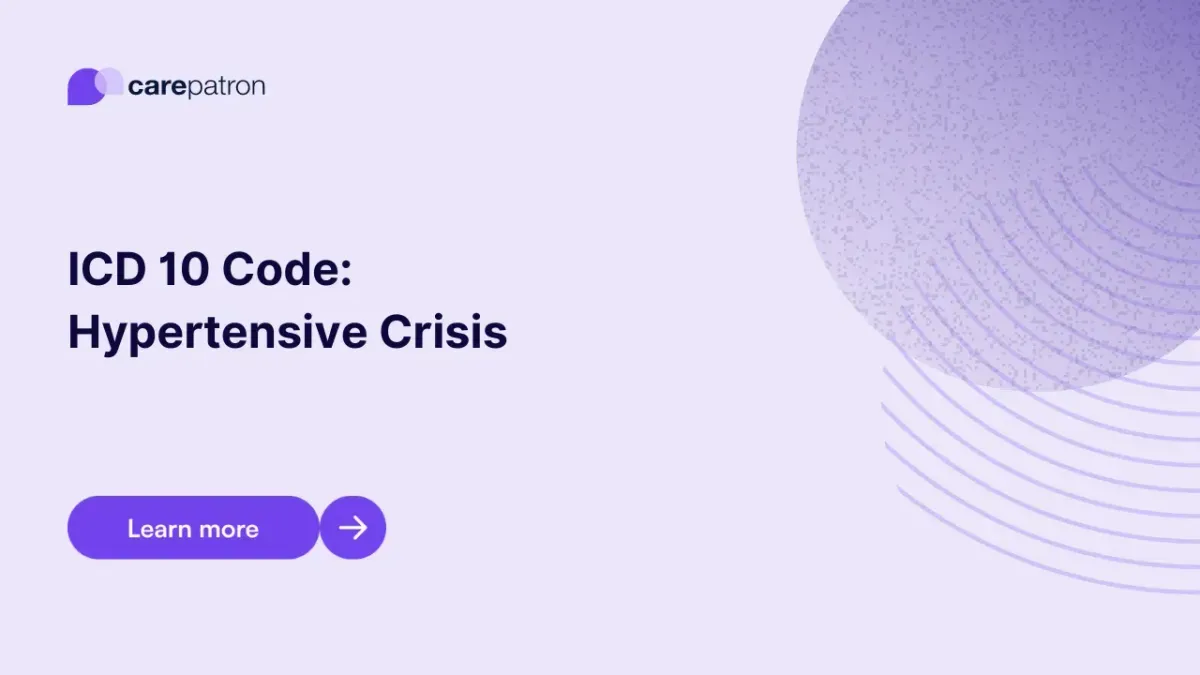
Hypertensive Crisis ICD-10-CM Codes | 2023
Discover ICD-10 codes for hypertensive crises. Learn how to document and bill for these severe blood pressure emergencies.
Use Code
Commonly asked questions
Use ICD codes for hypertensive crises when a patient has a sudden, severe increase in blood pressure requiring medical attention.
Yes, diagnosis codes for hypertensive crises are billable in medical billing, subject to insurance policies and documentation.
Common treatments include intravenous antihypertensive medications, management of organ-specific complications, and addressing underlying causes.
EHR and practice management software
Get started for free
*No credit card required
Free
$0/usd
Unlimited clients
Telehealth
1GB of storage
Client portal text
Automated billing and online payments
